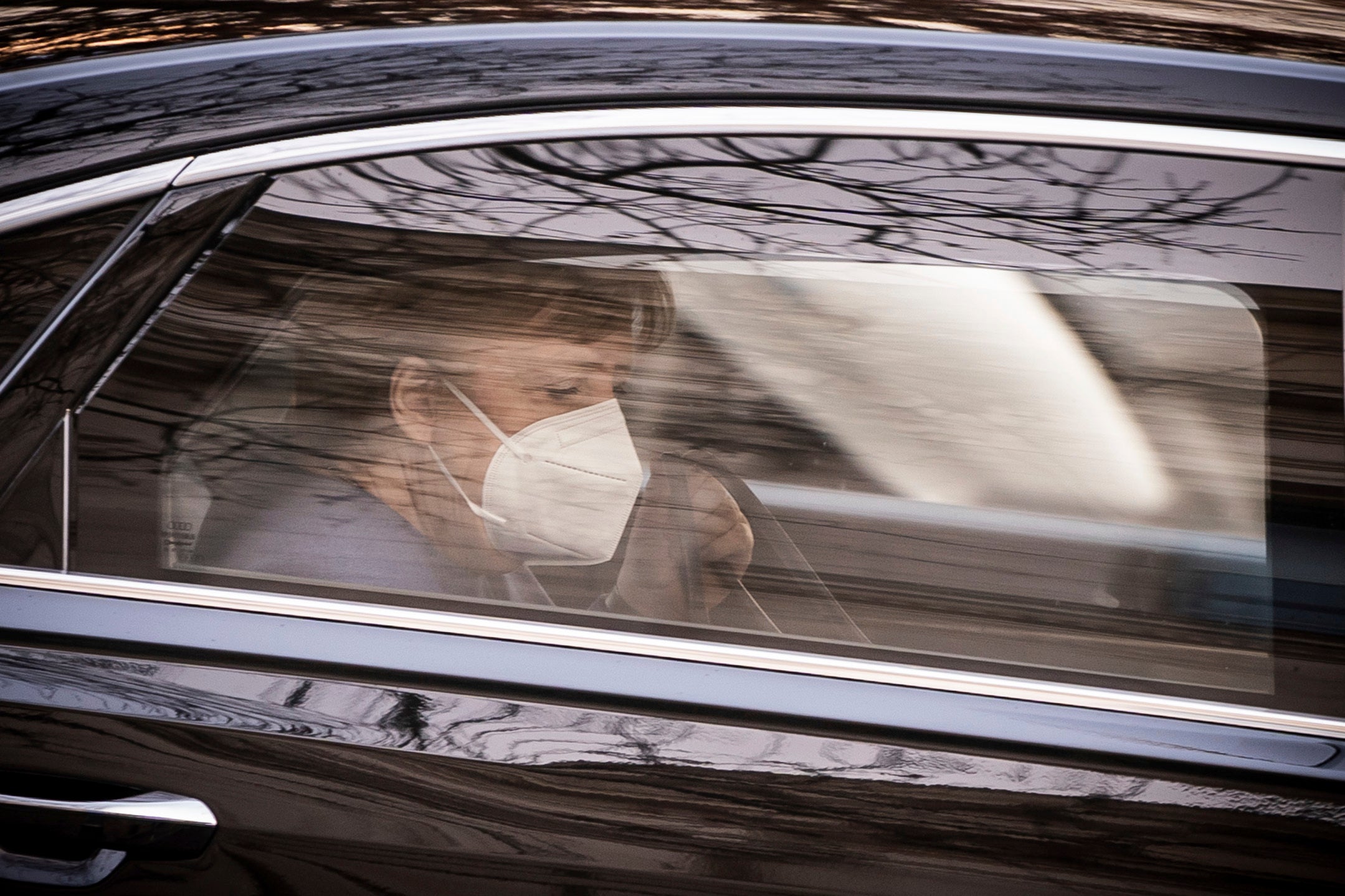German states tighten virus rules as pandemic battle falters
Two German states are moving closer to a “hard lockdown.”

Your support helps us to tell the story
From reproductive rights to climate change to Big Tech, The Independent is on the ground when the story is developing. Whether it's investigating the financials of Elon Musk's pro-Trump PAC or producing our latest documentary, 'The A Word', which shines a light on the American women fighting for reproductive rights, we know how important it is to parse out the facts from the messaging.
At such a critical moment in US history, we need reporters on the ground. Your donation allows us to keep sending journalists to speak to both sides of the story.
The Independent is trusted by Americans across the entire political spectrum. And unlike many other quality news outlets, we choose not to lock Americans out of our reporting and analysis with paywalls. We believe quality journalism should be available to everyone, paid for by those who can afford it.
Your support makes all the difference.Two German states moved closer to a “hard lockdown” Tuesday as officials warned that continued high coronavirus infections could overwhelm hospitals and that too many people were ignoring existing pandemic restrictions.
The governor of Saxony Michael Kretschmer, announced that schools and most stores will close from Monday until Jan. 10, as the eastern state recorded the Germany's worst infection rates.
Figures published by Germany’s disease control center showed the number of newly confirmed cases per 100,000 inhabitants reaching almost 320 in a week in Saxony — more than twice the national average of about 147.
In the neighboring state of Bavaria to the south, governor Markus Soeder urged regional lawmakers to back his government's decision to declare a state of emergency and introduce tough new measures including a nighttime curfew, more home schooling and stricter border controls.
“The numbers are simply not going down,” Soeder told parliament in Munich and warned: ”The second wave is worse than the first.”
Germany managed to avoid the high number of infections and grim death tolls seen in some other large European nations in spring, and continues to have a lower overall fatality rate than countries such as Britain, France and Spain. But while restrictions imposed in November have slowed the exponential rise in cases, the numbers keep creeping up.
The Robert Koch Institute, the country's disease control center, reported 14,054 newly confirmed cases in the past 24 hours Tuesday, taking the total since the start of the outbreak to almost 1.2 million. The number of COVID-19-related deaths in the country rose by 423 to 19,342.
“Every four minutes a person in Germany dies of corona,” Soeder told lawmakers, calling the outbreak “the biggest disaster that our generation has ever experienced.”
The conservative governor, who has been mooted as a possible successor to Chancellor Angela Merkel after next year's national election, took aim at those who have flouted or found loopholes in the existing rules.
Soeder said authorities in Bavaria would crack down on what he called “Gluehwein hopping” — the practice of going from one outdoor stall serving mulled wine to another to get around the closure of bars. He also slammed the far-right Alternative for Germany party and its members, who have railed against the restrictions and in some cases made unfounded claims that the coronavirus pandemic is over.
Saxony's economy minister, Martin Dulig, likewise appealed to people to follow the rules in the state, long a stronghold of the far right.
“It can't be right that the regions that reject masks and measures most strongly have the highest infection numbers,” he said. “There's clearly a link.”
“It's really a question of reason or unreason. And Saxony needs to become the land of reason again,” Dulig added.
Merkel, meanwhile, has said that the first coronavirus vaccine may not be available in Germany until early next year.
Authorities in the country said last month that they wanted mass vaccination centers ready by the middle of December. But the European Medicines Agency has since set a meeting for Dec. 29 to discuss approval for the vaccine made by German company BioNTech and its U.S. partner Pfizer.
In an Monday interview with Metropol FM, a Berlin radio station aimed at Germany’s Turkish community, Merkel said the vaccine “will probably be available and approved in Europe from the beginning of 2021, according to everything we now know.”
Britain’s regulator became the first worldwide last week to allow emergency use of the vaccine, and immunization began Tuesday.